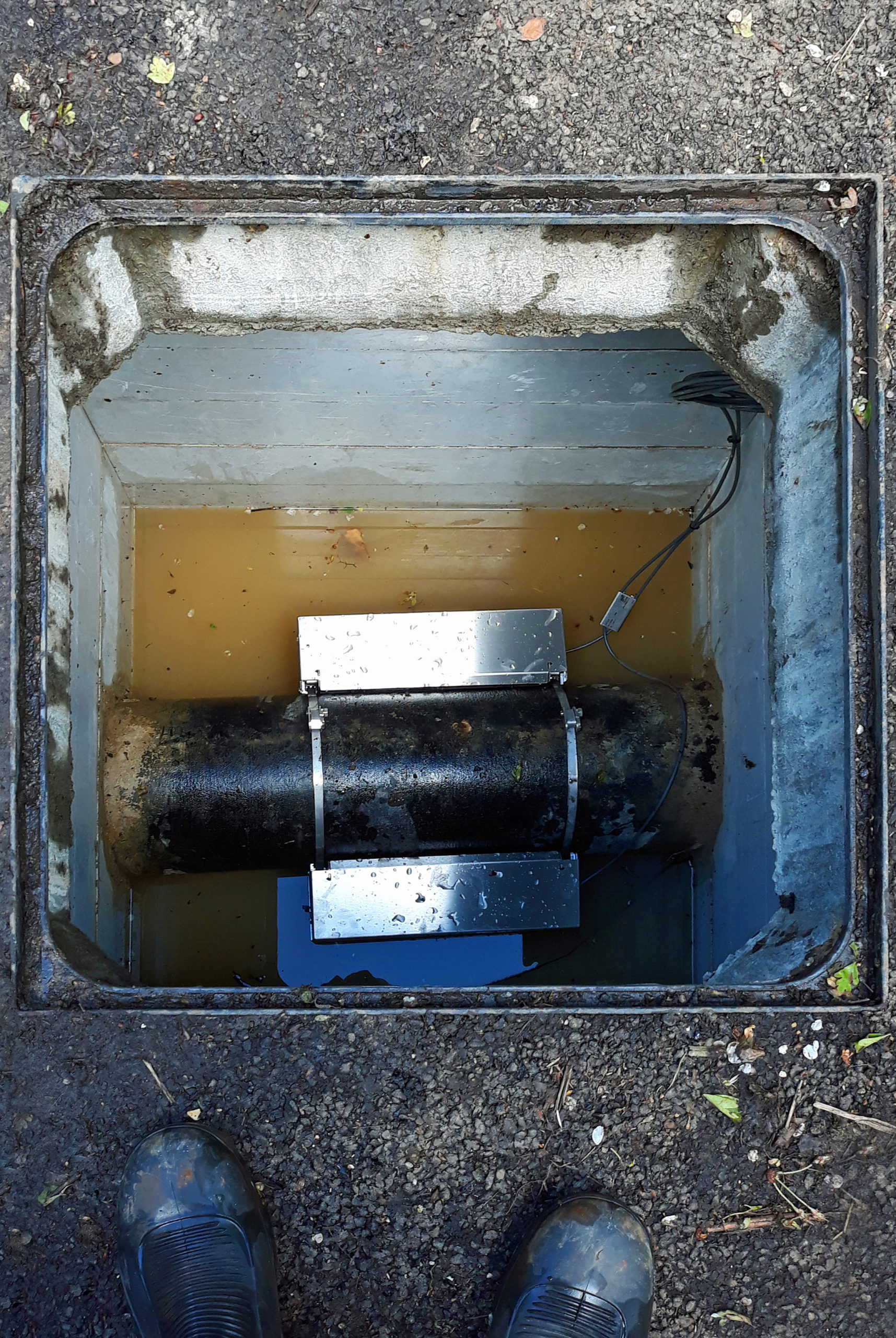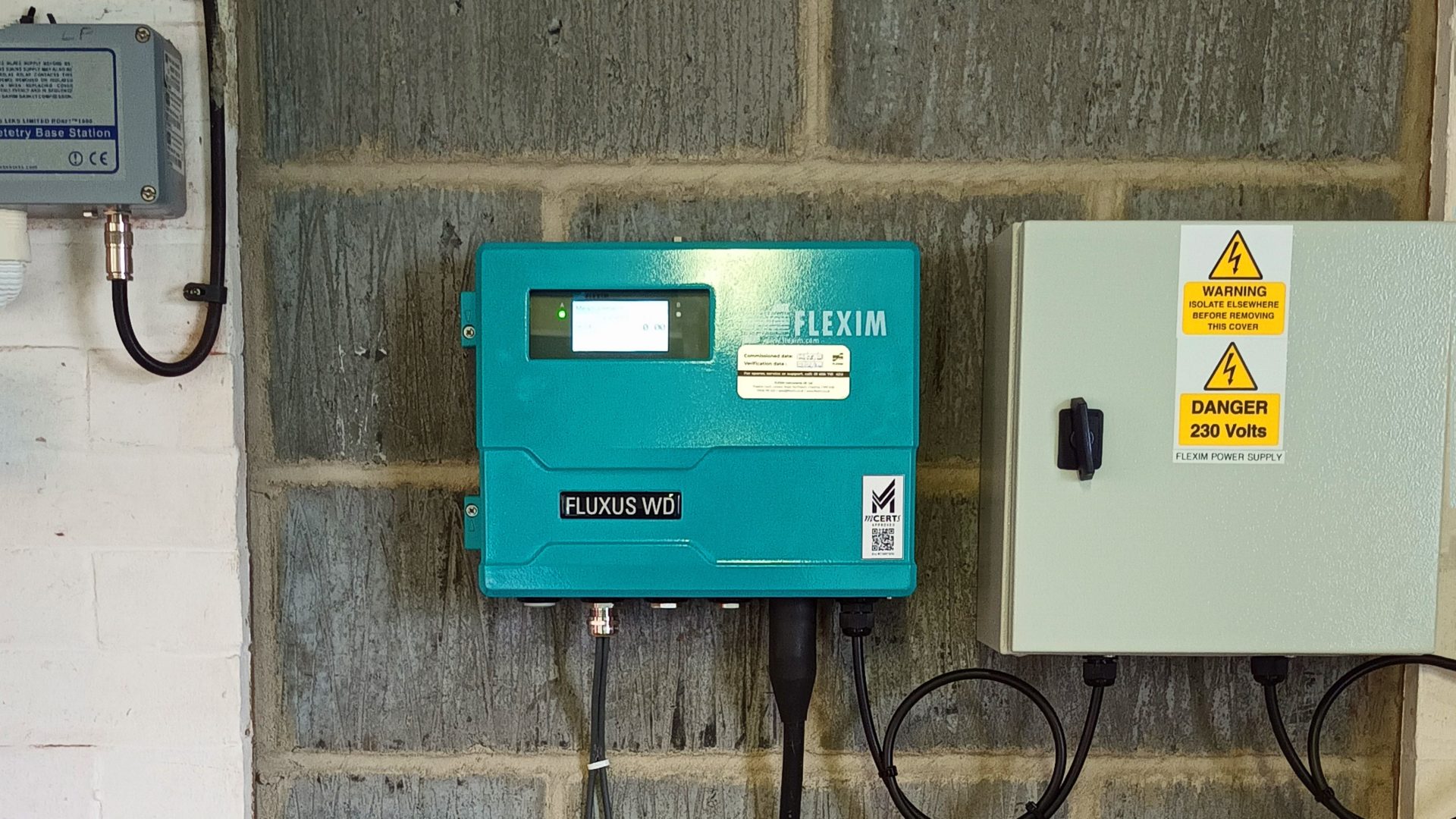
In this article, Andy Hammond, Managing Director, Flexim UK & Ireland, explores the ongoing challenges with accurate and reliable data collection in sewage pumping, wastewater treatment works (WwTW), and MCERTS metering as the industry continues to evolve.
Dynamic flow measurement – a critical requirement
Accurate and reliable data collection is crucial for meeting the stringent regulatory requirements of the UK government’s Storm Overflows Reduction Plan – a plan that mandates water companies to meet legal obligations designed to protect waterways from pollution.
The dynamic flow measurement of wastewater has become the cornerstone for data gathering, whether for existing systems or newly constructed infrastructure. Traditionally closed-pipe wastewater flows were monitored using Doppler ultrasonic technology, which relies on ultrasound reflections from suspended solids within the flow stream. However, this technology has often fallen short in delivering the precision or reliability needed for modern wastewater monitoring.
To address these shortcomings, Emerson’s Flexim Transit Time (or Time of Flight) ultrasonic metering technology has emerged as an effective solution. Proven in numerous applications, this technology provides optimal flow measurement performance and repeatability for wastewater flows containing up to 10% solids by volume, offering a substantial improvement over alternative technology.
Overcoming installation challenges

Flexim flow meters are factory-calibrated to a flow measurement uncertainty of ±0.3%, with installed performance as good as ±1%, provided that adequate straight pipe lengths are available. However, in the complex geometries of pump buildings or confined pipework spaces, achieving sufficient straight lengths can be a challenge. Flexim addresses this with the option to add a second ultrasound channel, enhancing flow profile averaging and reducing measurement uncertainty.
Adding a disturbance correction function, developed in collaboration with the German PTB metrology institute, allows for installations with minimal upstream straight length – just 2 diameters are needed. Regardless of the configuration, a repeatability of ±0.15% is ensured, providing confidence in wastewater monitoring and trend analysis.
Proactive monitoring with dynamic flow meter data
Rather than waiting for alarms from multiple Sewage Pumping Stations (SPS) following extreme weather events, proactive monitoring with dynamic flow meters offers an early warning system and visibility of the pumping station location(s) most at risk of breaching consent limits. This allows operators to efficiently prioritise intervention before it escalates into costly overspills, ensuring that water treatment systems remain within consent limits.
Meeting the challenges of WwTW PFF, CSO, and MCERTS metering
Wastewater Treatment Works (WwTW) designed decades ago are increasingly struggling to meet modern demands due to population growth, urban expansion, and the increased frequency of extreme weather events. Without real-time, reliable flow data, planning upgrades and investments is nearly impossible.
Implementing closed-pipe Pass Forward Flow (PFF) monitoring, previously known as Flow to Full Treatment (FFT), using Flexim FLUXUS WD Series clamp-on meters, provides a solution without necessitating plant downtime. These meters are installed quickly and easily, with no need for process interruptions, and they help prevent premature discharges from stormwater retention tanks, reducing the frequency of discharges into local watercourses.
MCERTS certification and IP68-rated transducers enables full submersion in flooded chambers, ensuring continued operation even in challenging conditions.



